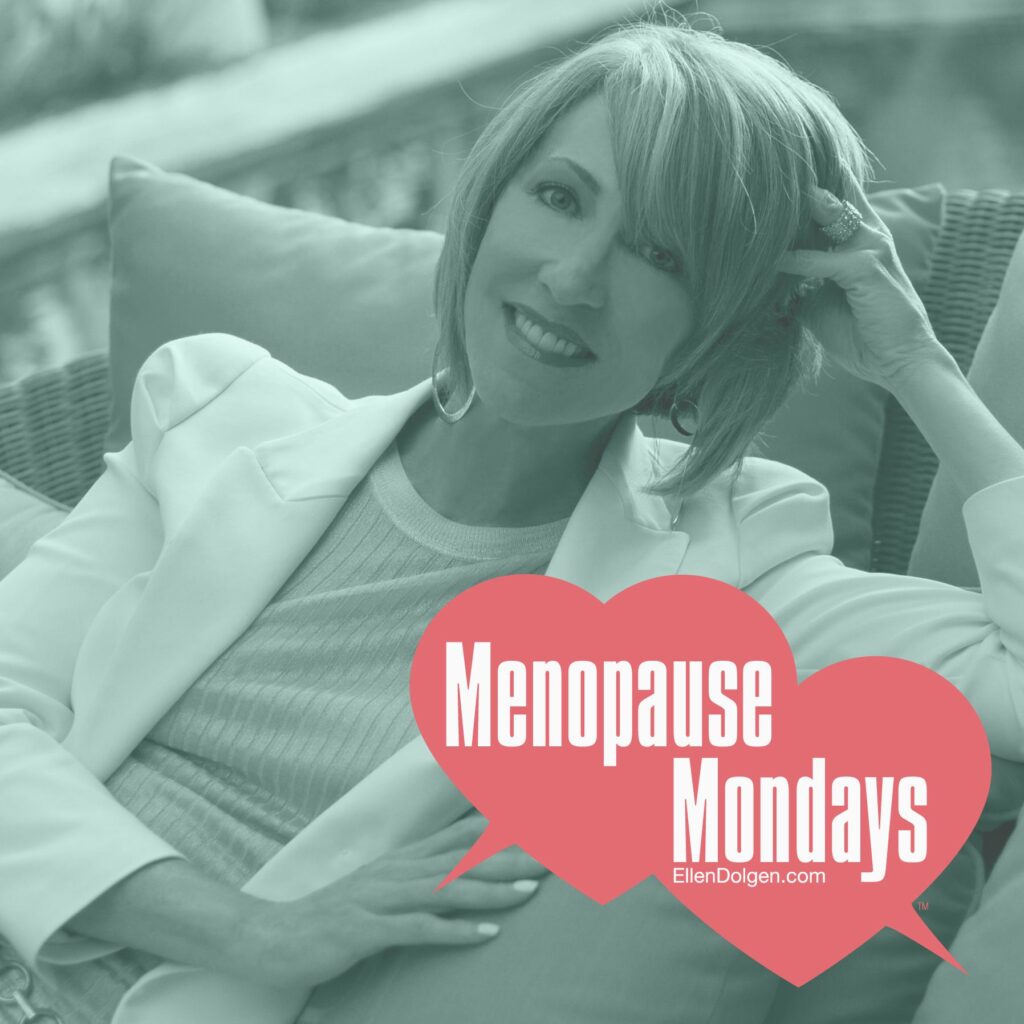When I was fourteen, all I wanted was to get my period. My girlfriends got theirs years before I did. I was so desperate for it that I even pretended I had it just to get out of gym class. Then, when I was sixteen years old, it finally arrived. I was ecstatic. I was sure that I was going to be “in” now. I had convinced myself that I’d suddenly be popular with boys, so I knew any minute guys would start flocking around me. I had been dreaming of this day for such a long time.
I put on my belt and pad (in those days, the only things with wings were birds) and waited to feel something magical. But there was no euphoria, just a pounding headache, cramps, a raging sea of hormones, and of course the monthly bloodbath. This was what I had been praying for? Are you kidding me?
For the next thirty years, I got used to it, but I never liked it. And I was certain I’d never miss it once it was gone.
And then I hit my mid-forties, and suddenly mind and body started behaving strangely. The very first time I noticed something was amiss, I was in a business meeting, and mid-sentence my train of thought wandered right off the rails. What was I saying? This kept happening, meeting after meeting, but I refused to accept that something was wrong. A few weeks later, in yet another meeting, without warning, heat began radiating up my body. It felt as though I was on fire. Perspiration was dripping down my face, trickling down between my breasts and settling in the inseams of my pantsuit. I looked like I had just finished a Bikram Yoga class (you know that sweaty kind of Yoga)! There I sat, shocked and completely embarrassed.
I started to notice that I was not nearly as energetic as I used to be. I often needed to get into a hot bath just to warm up my feet. I couldn’t seem to retrieve thoughts from my brain, and my mind would go blank midsentence.
It never occurred to me that I was beginning perimenopause. In fact, I didn’t even know what it was or ever heard the term mentioned. Instead, I began worrying that these were the early signs of Alzheimer’s disease or some other kind of dementia. All my life I had prided myself on being a masterfully organized, multitasking dynamo. I was not ready to lose that part of my personality.
During this time of confusion, I was lucky that my husband David was able to seamlessly jump in and finish sentences for me so as to spare me social embarrassment. After so many years together, he seemed to know what I was thinking. He sensed that my memory loss was horribly upsetting to me, so he sweetly mastered subtle ways to feed me facts. It was wonderfully kind of him.
I made a habit out of making jokes about my memory loss and just kept laughing it off, hoping it was just a fluke, and that perhaps tomorrow I would wake up back to my old self.
I had always been a happy person and not interested in being sick or “less than.” I didn’t talk about this with anyone because talking about it would make it real. Instead, the voice in my head kept secretly chanting that age-old woman mantra: “I am fine. I am fine. I am fine.”
When a woman says she is “fine,” this is the first sign of “the cover-up.” It’s not that we don’t want to be honest with those we love, but rather that we aren’t being honest with ourselves. Perimenopause and menopause were a huge secret and taboo for our grandmothers and mothers. In the 21st century, it is—shockingly—still very much a “hush-hush” subject, not to be openly discussed. Crazy, right?!
For some, it can be embarrassing to admit they’re experiencing perimenopause or menopause—especially with our society’s preoccupation with staying young forever. The changes our bodies and minds go through during this transition are challenging and, at times, even depressing. Hiding from yourself is not a solution.
Isolating yourself from those you love will only cause unnecessary breakdowns in your relationships, perhaps even to the point of divorce. Think I’m exaggerating? Not long ago, I was a guest on an advice program on Playboy Radio (I was fully clothed, but I’m a Phonemate now). Caller after caller—all men—told me stories of what their wives were going through and how it was destroying the intimacy in their relationships because they didn’t know where to turn for help or even how to talk about it. For one man, it was too late: “When we tried to have sex, no matter what we did, it hurt her. I didn’t want to hurt her, so we abstained. We became roommates for five years, barely speaking to each other until we finally split up. She is still the love of my life. I wish had known that this was menopause. I thought she didn’t love me anymore. Maybe, we could have found a menopause specialist and saved our marriage.”
So talk to the people in your life, talk to a Menopause Specialist, and talk to your partner. Let them know what’s going on with you, and let them help you. Suffering in silence is an unacceptable way to live.
You are not alone! Each woman will have her own journey. Each of our bodies is different. But we can and will get through this together.
Remember: Suffering in silence is OUT! Reaching out is IN.
For more great tips on how to find a menopause specialist and deal with menopause download my free ebook: MENOPAUSE MONDAYS the Girlfriend’s Guide to Surviving and Thriving During Perimenopause and Menopause.
Be sure to sign up for my fun YouTube Videos!





